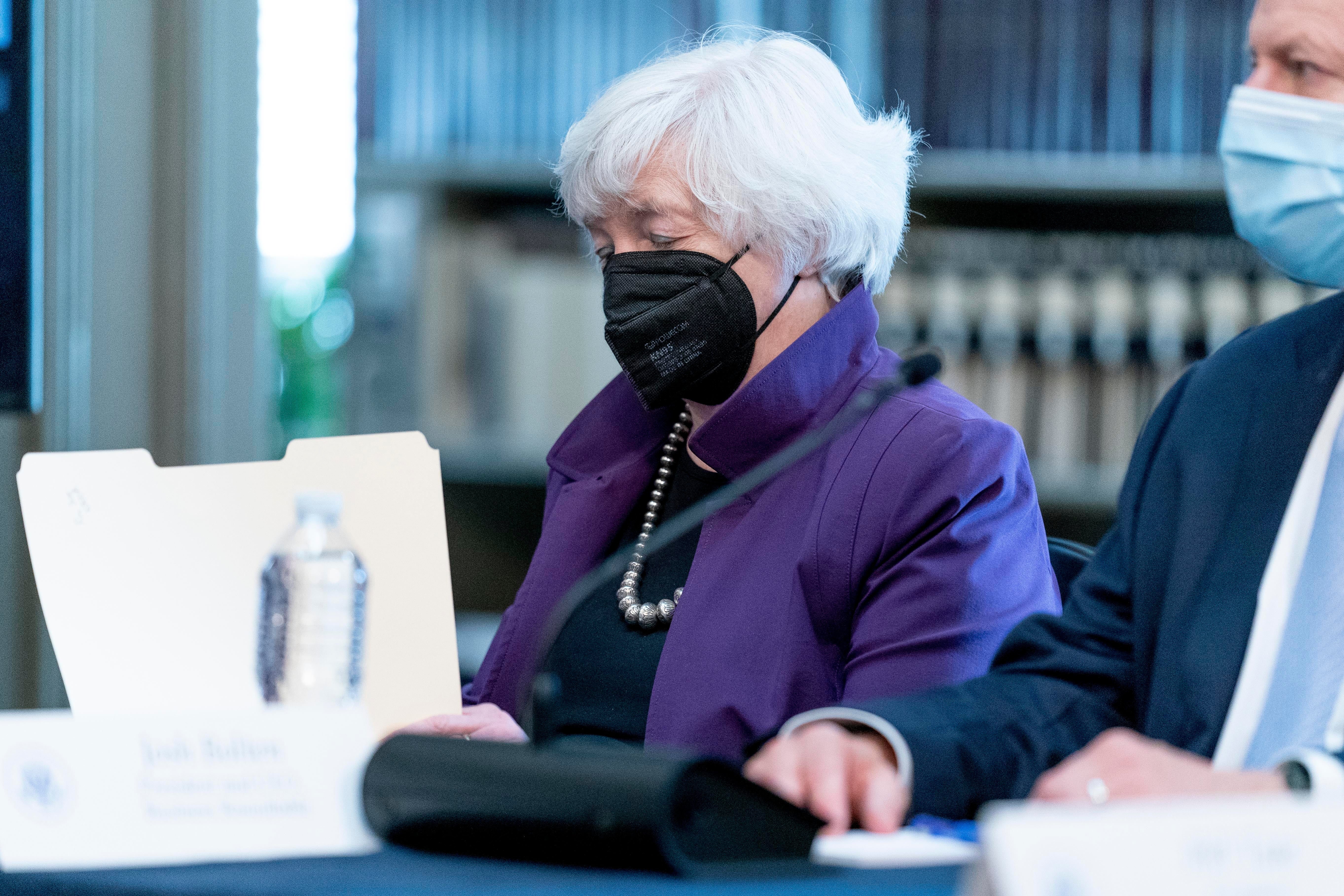Harris, Yellen make a personal case for fixing child care
The U.S. Treasury Department is issuing a new report that details the high expense and low wages for child care

The U.S. Treasury Department issued a report Wednesday that detailed the high price and low wages for child care, a problem that makes it harder for parents to work and one that the Biden administration aims to fix with its budget proposal.
Vice President Kamala Harris and Treasury Secretary Janet Yellen presented the findings in remarks that drew on personal experiences. Harris recalled spending weekdays with Regina Shelton, who ran a childcare center from her home while the vice president's mother was in the lab researching breast cancer.
“She became a second mother to my sister and me,” Harris said. “My mother often said that, but for Miss Shelton, she would not have been able to do the work that she did.”
Yellen recalled posting a classified advertisement for a babysitter when she was returning to work 40 years ago as an economics professor after having given birth. Yellen and her husband, the economist George Akerlof decided to pay wages above the market rate in order to receive better care.
“It’s a completely rational reason to pay someone more, especially if the job is some of the most intimate work there is, which is caring for children,” Yellen said. “Our hypothesis proved correct, at least in our own home.”
But Yellen emphasized that her experience is far from normal in the United States. The Treasury report draws attention to a troubling paradox in child care: It costs families too much money, yet the sector's workers receive chronically low pay that undermines the quality of care.
“Child care is a textbook case of a broken market,” Yellen said.
An average family with just one child under 5 would need to devote 13% of their income for child care. That's more than an average family spends on food and the report concludes that it's an unaffordable sum.
Child care workers earn an average of $24,230. More than 15% of the industry's workers live below the poverty line in 41 states and half need public assistance. As a result, the sector has high levels of turnover with 26% to 40% leaving their job each year. Nor is their much room to give among child care centers that tend to operate on profits of 1% or less.
The result is stressed parents, lower levels of women holding jobs and widening levels of inequality.
The Biden administration says it can resolve these problems through a substantial increase in investment in young children. It would cap child care expenses at 7% of a family's income. Universal pre-school for 3 and 4-year-olds would be provided. Families with children under 13 could receive dependent care tax credits of $4,000 per child or $8,000 for two or more children.
The government would also fund child care centers to ensure workers can receive a living wage.
Another key element would be the expanded child tax credit, which is providing families with children under the age of 6 with $300 a month per child and $250 monthly for older children.
But some lawmakers are hesitant to provide the comparatively robust benefits being proposed by the administration.
The president's plan would remove work requirements for families receiving the child tax credit, something that West Virginia Sen. Joe Manchin a key Democratic vote for passage, opposes.
“Tax credits are based around people that have tax liabilities," Manchin told a reporter for Insider, a news outlet. “I’m even willing to go as long as they have a W-2 and showing they’re working.”
Bookmark popover
Removed from bookmarks